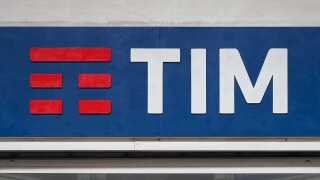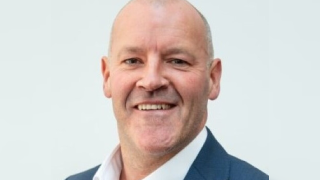BT’s shares went up on the news from Friday’s close of £1.541 to a peak of £1.679, and then fell again to £1.629, valuing the group at £16.2 billion.
That is an extraordinary 9% change in share price and valuation between Friday’s close and Monday’s peak.
The rumour was reported only in the Economic Times, part of the Times of India group, which headlined its story: “Reliance Industries weighs bid for UK telecom major BT.”
Reliance Industries, which is headed by Mukesh Ambani and which owns the Reliance Jio telecoms operation, dismissed the story in a stock exchange filing: “We categorically deny any intent to bid for the UK telecoms group BT. The article is completely speculative and baseless,” it said.
The Economic Times had said, mid-afternoon Indian time, mid-morning in the UK: “Asia’s richest man Mukesh Ambani may have set his sights on the UK to expand Jio’s telecom footprint.”
The newspaper added that Jio “may also propose to partner with BT’s fibre optic arm, Openreach, and fund its expansion plans”. It gave no named sources for the report, simply citing “sources familiar with the matter”.
At the same time, weekend reports in the UK said that Apax, Brookfield, CVC and Macquarie were all “sizing up” Openreach and some thought it might be worth £40 billion – more than twice as much as the BT group’s market cap.
Jio has succeeded in the past few years in causing an earthquake in the Indian mobile industry, but offering a low-price 4G service via a newly built network, thereby causing a plethora of rivals to merge into two, Bharti Airtel and the financially troubled Vodafone Idea – now called Vi.
In the past few weeks Jio has started to look outside India for further growth. It showed interest in September for Deutsche Telekom’s T-Mobile Netherlands, but was outbid by Apax Partners and Warburg Pincus, which offered a joint €5.1 billion for the business.
But Monday morning’s stock exchange fluctuations are merely an overture to what BT might expect in the coming weeks.
French businessman Patrick Drahi’s Altice became the biggest shareholder in BT in June 2021, suddenly buying a stake of 12.1%, then valued at £2.2 billion. This is roughly equivalent to Deutsche Telekom’s own 12% stake, acquired in 2016 when BT bought mobile operator EE, previously a joint venture of Deutsche Telekom and Orange.
Under UK rules Drahi cannot bid for more shares in BT until Friday 10 December – the end of next week. Altice UK, the company specially set up for this acquisition, said in June that it “holds the board and management team of BT in high regard and is supportive of their strategy. Altice UK has informed the BT board that it does not intend to make a takeover offer for BT. A key issue now is how Altice intends to unlock value.”
Deutsche Telekom is also known to have been interested in bidding for BT at one time. A private source told Capacity before the 2016 deal was completed that Deutsche Telekom would want to buy BT as soon as it could. The same person said that CEO Tim Höttges would take a non-executive role on BT’s board – something that both companies officially denied but later proved to be true.
Two years later Höttges told Capacity that he considered BT “a very attractive company”, though he avoided a question about a bid interest. Last year he said that he wanted to make European acquisitions.
However, in September 2021 he told a press conference: “We have a lot of optionality in the BT business. It’s too early to make a decision. We are entertaining all options.” He added: “I would say that in the next 12 months something is going to happen with the asset because the shareholder side is changing rapidly.”
Adel Al-Saleh, CEO of T-Systems International and a member of the management board of Deutsche Telekom, has taken over Höttges’s seat on the BT board – a role that is clearly labelled “non-independent, non-executive director”, to reflect the shareholding. Altice does not yet have a BT board seat.
Speculation has also focused on a sale or part-sale of Openreach, the UK operator that runs last-mile fibre and copper networks. This is 100% owned by BT, and at one time BT appeared to be looking for partners in its ownership – but in early November BT said it was no longer pursuing this idea because of its improved financial outlook after a cost-cutting programme.
Two weeks ago Vodafone claimed that a new deal with CityFibre, backed by Goldman Sachs and other private investors, would make it the biggest full fibre provider in the UK, outstripping Openreach. The deal will see Vodafone “able to offer full fibre to more homes than any other broadband provider”, it said.
CityFibre CEO Greg Mesch said: “Through our strategic partnership, Vodafone has made a powerful decision to back CityFibre and help establish wholesale infrastructure competition for the UK.”
CityFibre has been working on its political profile too: in October it appointed former government official Dan Ramsey, who was employed in the Cabinet Office, as its chief marketing officer.










